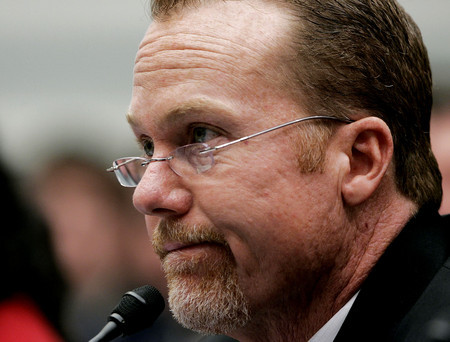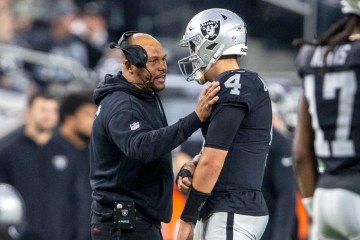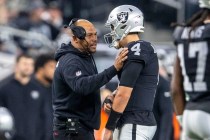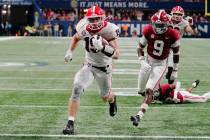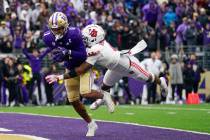Tearful McGwire plays us for chumps
Mark McGwire says he doesn't know exactly what he took, that he can't remember the names of the steroids he poured into his body over the course of a decade. He doesn't believe they helped him become a home run king. He doesn't view performance-enhancing drugs as a reason for his gargantuan blasts.
He considers his accomplishments authentic.
I wonder, then, if McGwire realizes how big a fraud he is.
We live in a society of second chances and forgiveness. There are baseball fans everywhere who want to believe and accept McGwire's tearful confession Monday that he used steroids only for health purposes, people who need a rope of faith to clutch, who don't want to admit that during a glorious summer in 1998, when baseball was resuscitated from its dying state back into a presumed time of innocence, they, too, were cheated by a dishonorable home run chase.
Then there are the rest of us, who couldn't discover more holes in 100 pounds of swiss cheese than there are in McGwire's revelations.
It means we understand there is no distinction between using steroids for recovering from injury and building muscle and strength to improve performance, that there isn't a drug expert alive who wouldn't tell you McGwire's steroid use led directly to his incredible numbers. You take steroids to grow muscle and recover quicker. Period.
It means we can wish for the impossible -- that baseball would have the guts to immediately expunge from its record books all of McGwire's statistics during the years he took steroids, an unlikely occurrence given the game's commissioner, Bud Selig, is equally guilty in this entire saga. Selig is the bumbling policeman who stood by and did nothing as one robber after another emerged from the bank with bags full of cash.
It means we can ask questions whose answers are so ridiculously obvious. Why now, on a Monday in January 2010, shortly after yet another shun from Hall of Fame voters, a few months before McGwire becomes hitting coach for the St. Louis Cardinals and knowing the mounds of questions he would face, years after the statute of limitations had run its course over any potential prosecution from his farce of a testimony before Congress. Why indeed.
It means we can remind you what sports are truly about, that playing through bumps and bruises and sprains and strains often separate the best, that how good you are is determined by how much pain you can tolerate and still perform. As former player Harold Reynolds said Monday, the beauty of baseball is finding ways to grind through 162 games, through the long, grueling summers, wondering if you should use a lighter bat just to survive. That by taking steroids, McGwire and others of his era cheated the ideal that defines the game they profess to love.
It means we can think today of all the kids wearing McGwire's jersey in 1998, of those who perhaps had to scrimp and save in St. Louis to sit high in the upper deck and watch McGwire set the season home run record, of Roger Maris' family, of all the sponsors who jumped aboard the runaway train of excitement, of Don Hooton, the father of Taylor, who was in Little League in 1998 watching McGwire chase history and took his own life five years later as a result of steroids when a high school coach told him he needed to get bigger to compete.
It means we can believe reports that FBI agents in the late 1980s and early 1990s thought they could have built a case against McGwire for being supplied with steroids used on horses and combining them with testosterone, that former teammates said McGwire openly discussed using human growth hormone with steroids during that magical season of 1998, that anything Jose Canseco says about using with McGwire is true because, well, name one thing Canseco has been wrong about.
It means that just because Mark McGwire has finally admitted what we suspected all along, this was still all about him when he cheated and it's all about him now.
It means that while we might live in a society of second chances and forgiveness, we are able to identify a fraud when we see one.
The list continues to grow in baseball, and the bumbling policeman keeps absolving them for finally coming forward.
It means more and more, the joke is on us.
Las Vegas Review-Journal sports columnist Ed Graney can be reached at egraney@reviewjournal.com or 702-383-4618. He also can be heard weeknights from 11 p.m. to 1 a.m. On "The Sports Scribes" on KDWN-AM (720) and www.kdwn.com.



